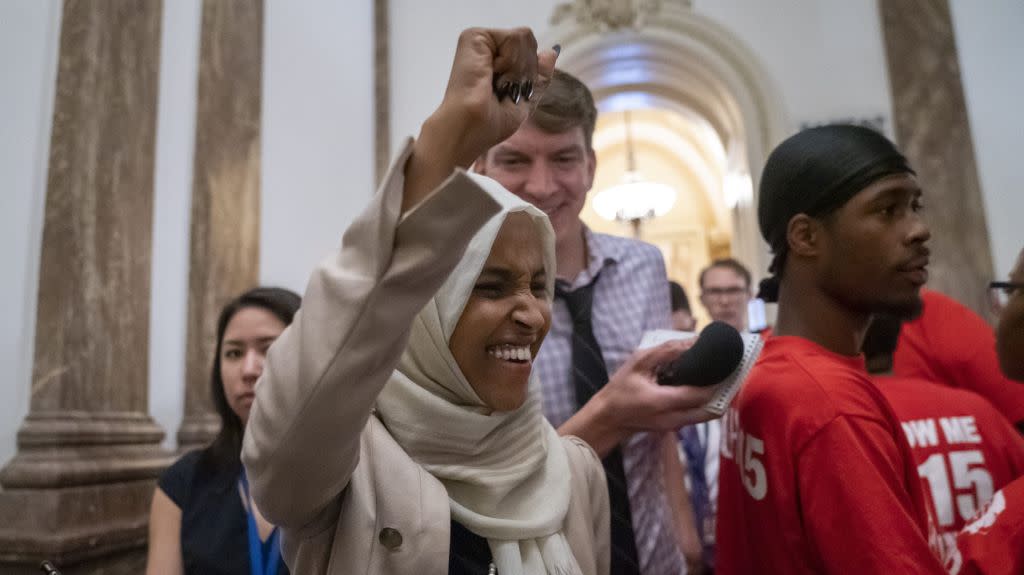The political power of Maya Angelou’s “Still, I Rise”

“Send her back!” a crowd of US president Donald Trump supporters chanted yesterday (July 17) in South Carolina, talking about Minnesota congresswoman Ilhan Omar, a Somali refugee. At the rally, the president accused Omar of supporting Islamic terrorism and having no regard for America.
The scene looked awfully similar to Trump’s 2016 rallies, when cries of “lock her up!” were directed at Hillary Clinton, and is a sign of the campaign to come.
Omar responded by tweeting a stanza from one of Maya Angelou’s most famous poems, Still, I rise.
You may shoot me with your words,
You may cut me with your eyes,
You may kill me with your hatefulness,
But still, like air, I’ll rise.-Maya Angelou https://t.co/46jcXSXF0B
— Ilhan Omar (@IlhanMN) July 18, 2019
The words of the African-American author seem to be particularly fitting to Omar’s plight. The chants echoed Trump’s suggestion earlier this week that she and three other congresswomen of color known as “the squad” “go back and help fix the totally broken and crime infested places from which they came.” The president has accused Omar of being an al Qaeda fan, anti-Semitic, and disparaging of US troops. He even resurfaced dispelled allegations that she married her brother in a visa fraud.
The poem Omar shared, published by Angelou in 1978, is often used as an anthem against all sorts of discrimination and oppression. The congresswoman’s quote choice is telling. While Omar could have tweeted the opening stanza (“You may write me down in history/With your bitter, twisted lies”) given the lies that have been spread about her, the excerpt she picked conveys the intensity of the aggression directed at her. It contains perhaps the most physically violent passage of the poem with the succession of the verbs shoot, cut, kill.
Like much of Angelou’s work, Still, I Rise contains references to her own life and history, female sexuality, hope, and the struggle of African American people for freedom. Angelou herself noted in a 1997 interview that she resorted to it during adverse times. She described it as “a poem of mine that is very popular in the country. And a number of people use it. A lot of black people and a lot of white people use it.”
Omar’s tweet is just the latest instance in which this poem has been quoted in recent years.
In 2015, Niki Minaj delivered a strong performance of the poem after a week of global terror and race tensions in the US:
In 2016, Serena Williams, who has been fighting against systematic discrimination within tennis, recited the poem in a video showing her many achievements and struggles:
During the first Women’s March in 2017, Alicia Keys read the poem to a cheering audience of women who had taken to the streets to manifest their opposition to Trump’s election:
Alicia Keys recites Maya Angelou’s “Still I Rise” at #WomensMarch pic.twitter.com/HtLcdu05w1
— Hollywood Reporter (@THR) January 21, 2017
Sign up for the Quartz Daily Brief, our free daily newsletter with the world’s most important and interesting news.
More stories from Quartz:

